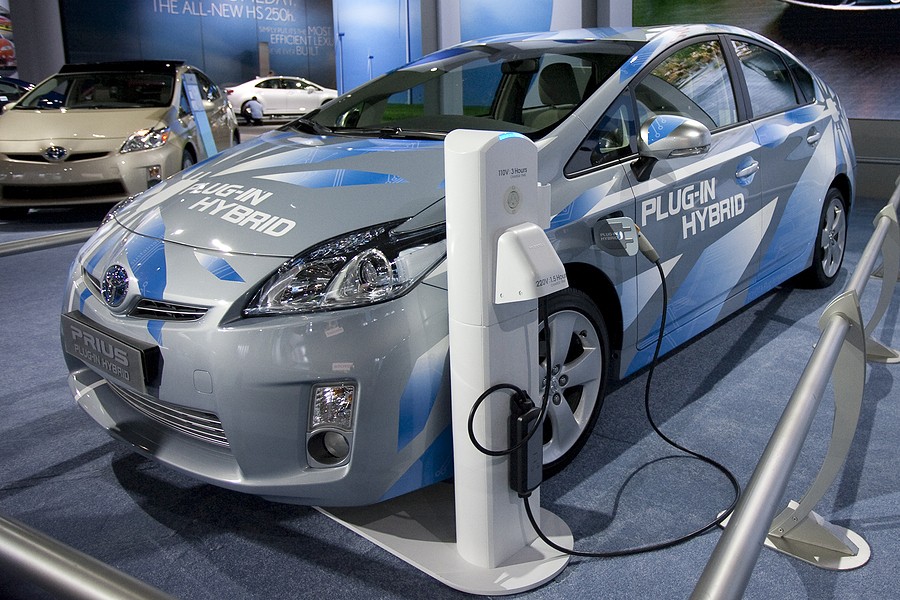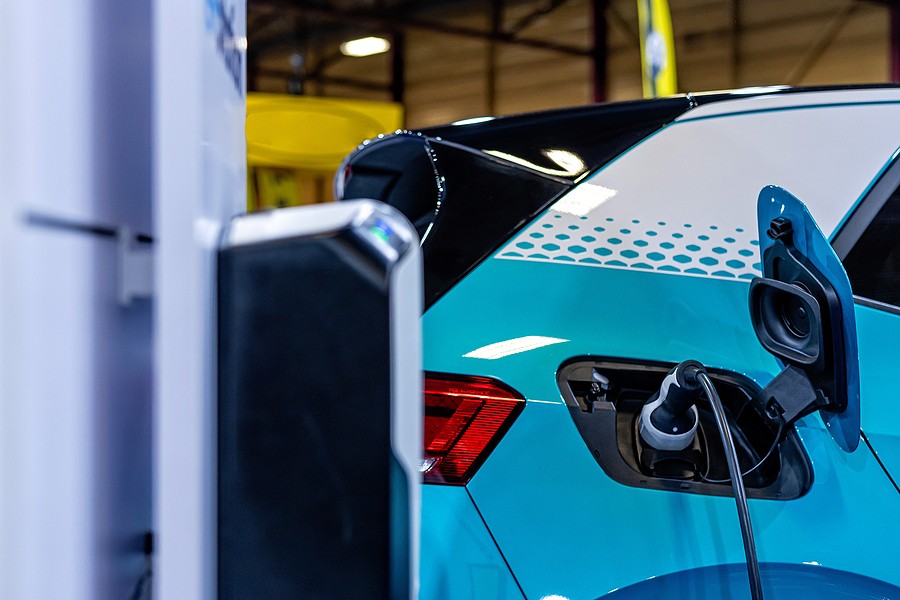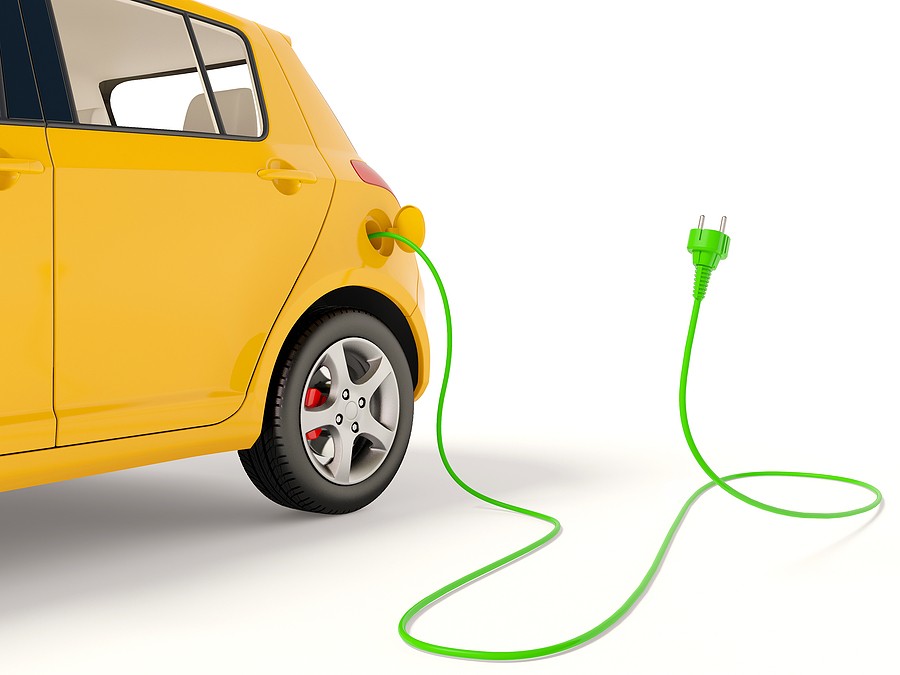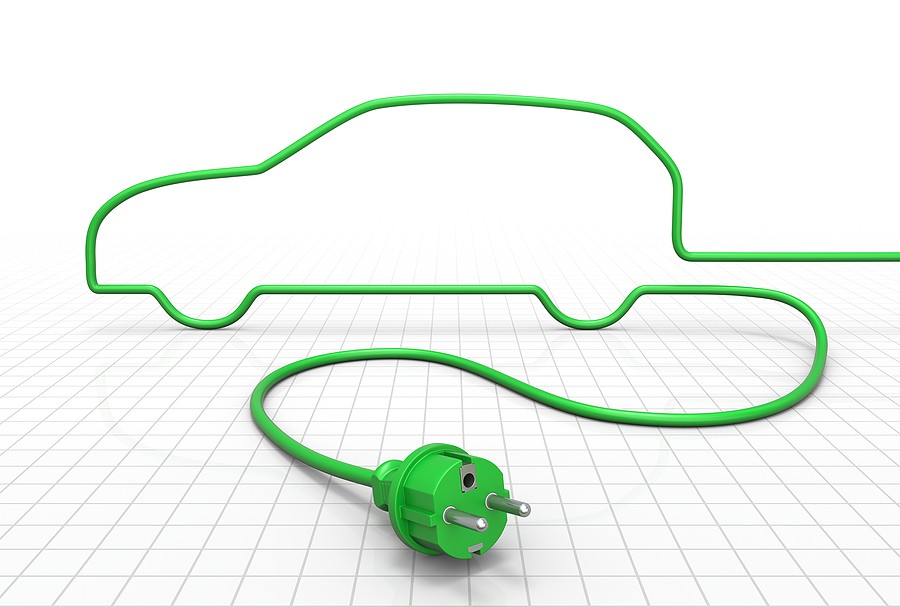Vehicles qualified for the tax credits 2022 under the Inflation Reduction Act include:
- 2022 Audi Q5 PHEV
- 2022 BMW 3 Series PHEV, BMW X5 PHEV
- 2022 Chrysler Pacifica PHEV
- 2022 Ford Escape PHEV, F-150 Lightning, Mustang Mach-E, Transit Van
- 2022 Jeep Grand Cherokee PHEV, Wrangler 4xe PHEV
- 2022 Lincoln Aviator PHEV, Corsair PHEV
- 2022 Lucid Air
- 2022 Nissan Leaf
- 2022 Rivian R1S, R1T
- 2022 Volvo S60 Recharge PHEV
- 2023 BMW 3 Series PHEV
- 2023 Mercedes-Benz EQS
- 2023 Nissan Leaf
Did you know that more electric vehicles are now qualified for up to $7500 of tax credits? The new Inflation Reduction Act provides additional incentives for those interested in purchasing electric vehicles.
There was some debate about which vehicles are qualified for the tax credit under the inflation reduction act since the Act added more restrictions about which vehicles are qualified. Luckily, the IRS provided a detailed answer!
On August 17th, 2022, the IRS released a list of 31 vehicles that qualified for the new EV tax credits structure under the inflation reduction act.
This article provides all the details you need to know about the new electric vehicle tax credit in 2022—highlights what changed in the old tax credit after the inflation reduction act was signed into law.

What does the inflation reduction act include for electric vehicles?
As you might have already heard over the news, the inflation reduction act is one of the largest bills ever that were signed, focusing on climate change, and reducing emissions. This bill includes some information about reducing emissions by providing some incentives for more electric vehicles.
Under this bill, some vehicles are eligible for the new tax credit, while others are no longer qualified. Interestingly, some vehicles are still qualified for the tax credit bought starting January 2023; these vehicles are no longer eligible. In addition, some other vehicles are going to be removed by 2024.
According to automotive experts, if you are planning to purchase an electric vehicle and this vehicle is now qualified for a tax credit, do not wait longer because this vehicle might not be qualified at some point. “If you're interested in an EV or a plug-in hybrid and it qualifies for a tax credit today, don't wait because it might not qualify next year,” says Jake Fisher, senior director of Consumer Reports Auto Test Center. “But if you're considering a used EV, it is worth waiting.”
Here are some of the biggest provisions in the Inflation Reduction Act related to electric vehicles:
1. The 200,000 vehicles cap
Before the inflation reduction act, manufacturers were allowed to provide tax credits for up to 200,000 electric vehicles. However, the new act removes this cap and allows for an unlimited number of vehicles.
Interestingly, would this change, so major manufacturers are no longer qualified like Tesla, GM, and Toyota.
2. No tax credit for non-us assembled vehicles
another important provision in the inflation reduction act is that any vehicle not assembled in the United States or another country with a trade agreement with the United States is no longer eligible for the tax credit.
Therefore, you have to be mindful about whether you want to purchase an important car or a car not meeting this requirement if you are planning to take advantage of the new EV tax credit.
3. the adjusted gross income cap
also, the inflation reduction act added some details about and adjusted the gross income cap for buyers. For example, if you are a single tax filer, this cap is $150,000. If you were the hit of households, then your cap will be $225,000. Finally, if you're filing jointly as a married couple, your cap will be $300,000.

Which vehicles are qualified for the new tax credit under the inflation reduction act?
There was some debate about which vehicles are included and will be qualified under the new tax credits under the inflation reduction acts. However, the IRS ended this debate and provided a list of 31 vehicles qualified for this tax credit.
It is important to understand that some of these vehicles are qualified for certain years while others are not. Therefore, you must focus on the list and understand which model year it includes so you don't get confused or put your money in the wrong vehicle.
1. Vehicles qualified for the EV tax credit in 2022:
- 2022 Audi Q5 PHEV
- 2022 BMW 3 Series PHEV, BMW X5 PHEV
- 2022 Chrysler Pacifica PHEV
- 2022 Ford Escape PHEV, F-150 Lightning, Mustang Mach-E, Transit Van
- 2022 Jeep Grand Cherokee PHEV, Wrangler 4xe PHEV
- 2022 Lincoln Aviator PHEV, Corsair PHEV
- 2022 Lucid Air
- 2022 Nissan Leaf
- 2022 Rivian R1S, R1T
- 2022 Volvo S60 Recharge PHEV
- 2023 BMW 3 Series PHEV
- 2023 Mercedes-Benz EQS
- 2023 Nissan Leaf

2. Vehicles qualified for the EV tax credit in 2023:
- 2022 Tesla Model 3, Model S, Model X, Model Y (maybe not)
- 2023 Cadillac Lyriq
- 2022 GMC Hummer Pickup/SUV (maybe not)
- 2023 Chevrolet Bolt, Bolt EUV
While the previous two lists provided you with the names and brands of vehicles that qualified for the new tax credit, it is as important to understand which vehicles are no longer qualified, so you save away from them unless you are fully aware that you're not going to be qualified or you're not going to enjoy the new tax credit.
The IRS also provided a list of vehicles that are no longer qualified for the new tax credit, including:
- Audi E-Tron
- Fisker Ocean
- Genesis GV60
- Hyundai Ioniq 5, Ioniq 6, Kona Electric, Nexo
- Jaguar I-Pace
- Kia EV6, Niro Electric
- Lexus RZ
- Mazda MX-30
- Mercedes-Benz EQB
- Nissan Ariya
- Polestar 2
- Subaru Solterra
- Toyota bZ4X, Mirai
- Volkswagen ID.4 (only 2022 models made in Germany)
- Volvo C40
This is a long list of very common vehicles that many people are looking to purchase. Therefore, you have to be careful about your next purchase because electric vehicles are not cheap and you're investing your money in a massive investment. Therefore, it makes the most sense to take advantage of all available incentives unless you're 100% sure you would like to purchase this car because whatever this car provides is not available in any other vehicle.

How can I confirm that my electric vehicle is built in North America?
One of the most important requirements under the inflation reduction act is that your vehicle must be made in the United States or North America to confirm that it's qualified for the new tax credit.
However, if you're an inexperienced person, you might not know exactly I bought this vehicle was made in North America, and whether it qualifies for this tax credit or not.
Luckily, there aren't some easy locations where you can confirm this information like:
1. The window sticker
If you look at the sticker on your vehicle's window, you should find detailed information about the vehicle, including where this vehicle was assembled. Thus, if you understand what's exactly called under this sticker, you'll be able to figure out whether it's made in North America or not.
2. The VIN
if you were not successful in determining whether your vehicle was made in North America by looking at the sticker, the other thing you can do is to look at the VIN. Sometimes you might not have the actual vehicle, and you're shopping for a car online.
Once you get the VIN or the vehicle identification number, you can track down some information and learn about where this vehicle was made.
Despite the location where you got the information, you can always go to the National Highway Traffic Safety Administration and get more details about every vehicle by just looking up the VIN.
Once you confirm the VIN, you can also check the IRS website and look in the list and see if this vehicle qualifies or not. As you're looking through the website, check that this vehicle is qualified for which year because, as we mentioned before, things change by year. This should give you a sense of whether you should go ahead with your purchase or wait for a year or two before buying your favorite vehicle.

Should I buy an electric vehicle now or wait?
There is a very common debate about whether people should go ahead and purchase electric vehicles or not. Some experts are encouraging people to go ahead and purchase the vehicles, while others have some different opinions.
For those experts who recommend not to purchase an electric vehicle now, there are plenty of reasons for waiting. For example, the current market in the vehicle industry is skyrocketing, and the inventories at most dealerships are almost empty. Therefore, if you're planning to purchase any electric vehicle, it'll be extremely expensive, and if you don't need a car now, waiting might be a better option until things cool down and prices drop again.
On the other hand, with a new inflation reduction act, more experts are now recommending purchasing electric vehicles because of the new tax credit incentives. In other words, if you would like to purchase an electric vehicle, this vehicle might be qualified today, but next year it might not.
The bottom line is for you to decide based on your goals and needs. In other words, if you need a car now and have no other option, then you can go ahead and look for a vehicle that is qualified for the new tax card. You got to do your research and confirm that you're buying the right car, so you don't end up without taking advantage of the tax credit.
On the other hand, if you have no strong reason for buying a car nowadays, you might want to hold on to your current vehicle and monitor the situation carefully to see where things are going because you never know, things might improve. There might be some additional solutions that you might take advantage of.

Final thoughts
There are tons of reasons why people are switching now to electric vehicles. Some of these reasons are related to the increased prices of gasoline. In contrast, others are more related to available incentives like the tax credit you will receive from purchasing an electric vehicle.
The Inflation Reduction Act encouraged more people to purchase electric vehicles by adding more cars to the list of qualified EVs for the new tax credit.
Although more electric vehicles are now qualified, it's a little bit more challenging for customers to figure out whether this vehicle is qualified or not.
This article provided you with a detailed summary of the IRS new qualified vehicles for the EV tax credit as of 2022 and 2023.
If you're planning to purchase an electric vehicle, it could be a perfect time to buy it, and you don't have to wait until this vehicle is no longer qualified because things could change over the next years.
Are you looking for someone to buy your old car so you can have enough money to purchase your beloved new EV? Why don't you reach out to Cash Cars Buyer!
Cash Cars Buyer is one of the top-rated car removal companies in the nation that guarantees to pay you the top dollars and provide you with free towing despite your living location around the United States.
Our process is very straightforward and doesn't take more than a couple of days to get your car removed safely and for the most money.
All it takes you is to:
- Describe your car's type and condition
- Receive our instant free quote
- Accept the quote
- Get your car removed and receive your cash payment on the spot!
To learn more about our process and our team, you can reach out to us by calling us at (866) 924-4608 or by visiting our home page click on the free instant online offer.



